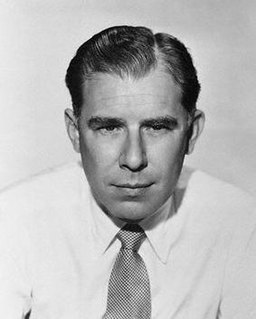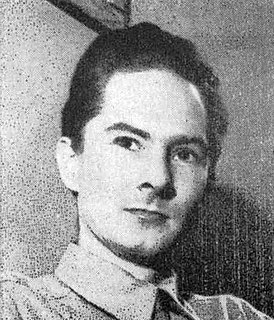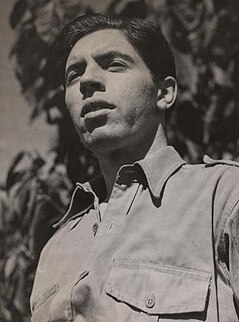Related Research Articles

John Kilian Houston Brunner was a British author of science fiction novels and stories. His 1968 novel Stand on Zanzibar, about an overpopulated world, won the 1969 Hugo Award for best science fiction novel, and the BSFA award the same year. The Jagged Orbit won the BSFA award in 1970.

Richard Burton Matheson was an American author and screenwriter, primarily in the fantasy, horror, and science fiction genres.

Leigh Douglass Brackett was an American science fiction writer known as "the Queen of Space Opera." She was also a screenwriter, known for The Big Sleep (1946), Rio Bravo (1959), and The Long Goodbye (1973). She also worked on an early draft of The Empire Strikes Back (1980), elements of which remained in the film; she died before it went into production. In 1956, her book The Long Tomorrow made her the first woman ever shortlisted for the Hugo Award for Best Novel, and, along with C. L. Moore, one of the first two women ever nominated for a Hugo Award. In 2020, she won a Retro Hugo for her novel The Nemesis From Terra, originally published as "Shadow Over Mars".

George Seaton was an American screenwriter, playwright, film director and producer, and theatre director.

Drexel Jerome Lewis Bixby was an American short-story writer and scriptwriter. He wrote the 1953 story "It's a Good Life", which was the basis of a 1961 episode of The Twilight Zone and was included in Twilight Zone: The Movie (1983). He also wrote four episodes for the Star Trek series: "Mirror, Mirror", "Day of the Dove", "Requiem for Methuselah", and "By Any Other Name". With Otto Klement, he co-wrote the story upon which the science fiction movie Fantastic Voyage (1966), the related television series, and the related Isaac Asimov novel were based. Bixby's final produced or published work so far was the screenplay for the 2007 science-fiction film The Man from Earth.

Edward Sidney Devereaux, better known professionally as Ed Devereaux, was an Australian actor, director, and scriptwriter who lived in the United Kingdom for many years. He was best known for playing the part of Matt Hammond the head ranger in the Australian television series Skippy the Bush Kangaroo. He was also involved in the series behind the scenes, Devereaux writing the script and directing the episode The Veteran (1969), for which he received much critical acclaim. Devereaux based the story of the episode "Double Trouble" on an idea conceived by his children, wrote the screenplay of "Summer Storm" and the script for "The Mine". He also played the part of Joe in the Australian 1966 film ‘They’re a Weird Mob’. The film was a local success.

Henry George Carey Jr. was an American actor. He appeared in more than 90 films, including several John Ford Westerns, as well as numerous television series.

Henry Farrell was an American novelist and screenwriter, best known as the author of the renowned gothic horror story What Ever Happened to Baby Jane?, which was made into a film starring Bette Davis and Joan Crawford.
Michael Wilson was an American screenwriter.
George Henry Smith was an American science fiction author who also wrote soft-core erotica. He is not the same person as George H. Smith, a libertarian writer, or George O. Smith, another science fiction writer. There were at least three authors writing as "George H. Smith" in the 1960s; one wrote many "swamp love" paperback originals, which are often erroneously attributed to George Henry Smith. Smith himself used the pseudonyms Jeremy August, Jerry August, Don Bellmore, Ross Camra, M J Deer, John Dexter ; George Devlin, Robert Hadley, Jan Hudson, Jerry Jason, Clancy O'Brien, Alan Robinson, Holt Standish, Diana Summers, Hal Stryker, Hank Stryker, Morgan Trehune, Roy Warren, and J X Williams for publishers such as Avalon, Beacon, Boudoir, Brandon House, Epic, Evening Reader, France, Greenleaf, Midwood, Monarch, Notetime, Pike, Pillow, and Playtime. It is known that he wrote more than 100 novels.

Michael Pate OAM was an Australian actor, writer, director, and producer, who also worked in Hollywood in the 1950s and 1960s.

Henry Slesar was an American author, playwright, and copywriter. He is famous for his use of irony and twist endings. After reading Slesar's "M Is for the Many" in Ellery Queen's Mystery Magazine, Alfred Hitchcock bought it for adaptation and they began many successful collaborations. Slesar wrote hundreds of scripts for television series and soap operas, leading TV Guide to call him "the writer with the largest audience in America."
Alan Beverley Cross was an English playwright, librettist, and screenwriter.

Robert Lenard Lippert was an American film producer and cinema chain owner. He was president and chief operating officer of Lippert Theatres, Affiliated Theatres and Transcontinental Theatres, all based in San Francisco, and at his height, he owned a chain of 139 movie theaters.
James Ruffin Webb was an American screenwriter. He was best known for writing the screenplay for the film How the West Was Won (1962), which garnered widespread critical acclaim and earned him an Academy Award.
Javar Seetharaman was an Indian author, screenwriter and actor.
Richard Edward Wormser (February 2, 1908 in New York City, [[New York |New York] was an American writer of pulp fiction, detective fiction, screenplays, and Westerns, some of it written using the pseudonym of Ed Friend. He is estimated to have written 300 short stories, 200 novelettes, 12 books, many screenplays and stories turned into screenplays, and a cookbook: Southwest Cookery or At Home on the Range.
Dhruva Chatterjee or Dhruv Chatterjee was a noted writer and screenwriter of Hindi cinema in the 1960s and 1970s. Memorable movies written and scripted by him include Chirag Kahan Roshni Kahan (1960), Hariyali Aur Rasta (1962), Gehra Daag (1963), Woh Kaun Thi? (1964), Kohra (1964), Gumnaam (1965), Chor Machaye Shor (1974), Dus Numbri (1976) and Fakira (1976). He was also nominated for the Filmfare Award for Best Story in 1960, for Chirag Kahan Roshni Kahan (1959).
Noel Bertram Gerson (1913-1988) was an American author who wrote 325 books, including several best sellers, among them two screenplay novelizations penned under the pseudonym Samuel Edwards, The Naked Maja, and 55 Days at Peking.
Alfredo Ruanova, was an Argentine writer, screenwriter and film producer.
References
- ↑ Weaver, Tom (19 February 2003). Double Feature Creature Attack: A Monster Merger of Two More Volumes of Classic Interviews. McFarland. p. 320. ISBN 9780786482153.